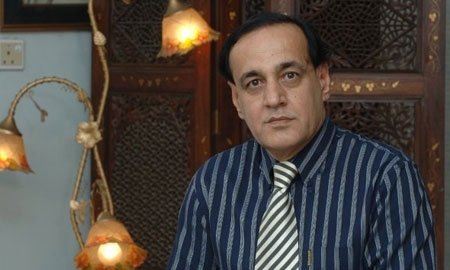The global community thinking over the destiny of Gaza after Israel’s war on it ends can repeat its mistakes of the past. Of course, there is a desire to sideline a legitimate political actor i.e. Hamas.
From the time when Israel declared its war on Israel, it has frequently made clear that it wants to pull to pieces and eliminate Hamas, for which it has got support from its partner, the US, and European countries.
Israel says it is after Hamas’s fighters and their military structure, but during the time it started the war, it has become apparent that it is also bombing its political structures, including ministries, institutions that make available civilian services, amenities responsible for basic benefits, and so on.
Moreover, worse than that, Israel has confirmed its intent to destroy the civilian infrastructure of the Gaza Strip and oust as many of its residents as possible.
Israeli PM Benjamin Netanyahu in its November 17 interview with NPR, declined to say who should govern Gaza. He did assert that whoever it is, it could not be people dedicated to funding terrorism and indoctrinating terrorism. He then went on to link the Israeli assault of Gaza to the Allies’ occupation of Germany and Japan after World War II.
Netanyahu’s comparison between Germany, Japan, and Gaza is erroneous. Since 1967, Gaza as well as the West Bank and East Jerusalem has been under Israeli occupation. Unlike the Germans and the Japanese, the Palestinians do not have a State and have the position of an occupied population. Intrinsically, under international law, their acts of armed resistance are not identical or similar to acts of belligerence by an independent state with a national army.
Historically, the fight in Palestine under occupation has taken many forms and is conducted by several political parties, both on the left and on the right. Yet, Israel has branded all of them as terrorists whether it was the Palestinian Liberation Organization (PLO), the Popular Front for the Liberation of Palestine, the Democratic Front for the Liberation of Palestine, or any other.
If Hamas was torn apart, as Israel desires to do, another fighting group would take its place. This is because the culture of resistance is rooted in the Palestinian society on the religious, political, economic, and social levels and it will require much more than the eradication of one party to change that.
Because of this, the strategies of foreign powers to impose an unelected government on Gaza are likely to go wrong. It is important to note that Hamas won the 2006 legislative elections in the occupied Palestinian territories and its government was elected democratically.
Ever since it has become so rooted in the Palestinian society in general, and in Gaza particularly, that its sidelining in any future Palestinian State would create massive societal tensions. It would also create a political, societal, and safety vacuum that would not do any good for whoever takes over governance.
When the war in Gaza will end and what follows next is still uncertain. If Western and regional powers repeat past mistakes of sidelining a major political actor and seeking to impose their will on the Palestinian people, they will not get a different outcome than they have had in the past.
Palestinians must get their voting rights and their right to voice their political opinions. A ruling body that does not represent the people ignores their demands and complaints, which leads to precarious outcomes, including internal conflict.
The sidelining of a political party could silence it temporarily, but could not fail it. The denial of its right to political participation could push its members to return to the political scene with violence.







